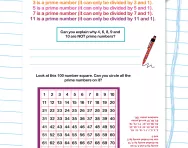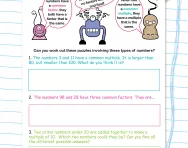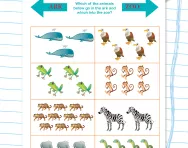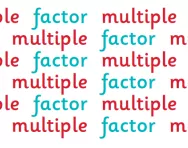Important update from TheSchoolRun
For the past 13 years, TheSchoolRun has been run by a small team of mums working from home, dedicated to providing quality educational resources to primary school parents. Unfortunately, rising supplier costs and falling revenue have made it impossible for us to continue operating, and we’ve had to make the difficult decision to close. The good news: We’ve arranged for another educational provider to take over many of our resources. These will be hosted on a new portal, where the content will be updated and expanded to support your child’s learning.
What this means for subscribers:
- Your subscription is still active, and for now, you can keep using the website as normal — just log in with your usual details to access all our articles and resources*.
- In a few months, all resources will move to the new portal. You’ll continue to have access there until your subscription ends. We’ll send you full details nearer the time.
- As a thank you for your support, we’ll also be sending you 16 primary school eBooks (worth £108.84) to download and keep.
A few changes to be aware of:
- The Learning Journey weekly email has ended, but your child’s plan will still be updated on your dashboard each Monday. Just log in to see the recommended worksheets.
- The 11+ weekly emails have now ended. We sent you all the remaining emails in the series at the end of March — please check your inbox (and spam folder) if you haven’t seen them. You can also follow the full programme here: 11+ Learning Journey.
If you have any questions, please contact us at [email protected]. Thank you for being part of our journey it’s been a privilege to support your family’s learning.
*If you need to reset your password, it will still work as usual. Please check your spam folder if the reset email doesn’t appear in your inbox.
What is a prime number?
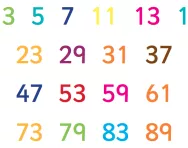
What is a prime number?
A prime number is a number greater than 1 that cannot be divided evenly by any number other than itself or 1.
For example: 17 is a prime number because you cannot divide it (without a remainder) by any number except 17 or 1:
17 ÷ 17 = 1
17 ÷ 1 = 17


Boost your child's maths & English skills!
- Follow a weekly programme
- Maths & English resources
- Keeps your child's learning on track
Prime numbers in Key Stage 2
They may be asked questions such as the following to test them on their knowledge of prime numbers:
36 has two factors which are prime numbers. What are they?
Answer: 2 and 3
Sometimes questions on prime numbers will be combined with other skills, such as probability:
Susan has this spinner: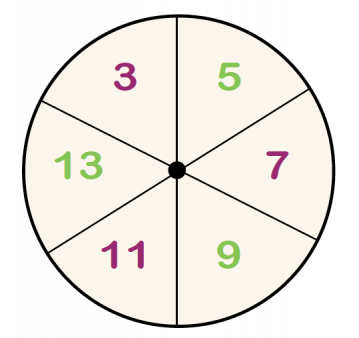
What is the probability that when Susan spins the spinner it will land on a prime number?
Answer: Since 3, 5, 7, 11 and 13 are prime numbers, the probability will be 5/6.
Prime number investigations
Prime numbers can be a fascinating subject. and they play a big role in modern business and our online life. Prime numbers are used to create the public key cryptography algorithms which are used to secure nearly all online data transfers, including email encryption and bank card security. Almost every online purchase made will use prime numbers in its security process!
Show your child the world's largest known prime number, which is over 17 million decimal digits long.

